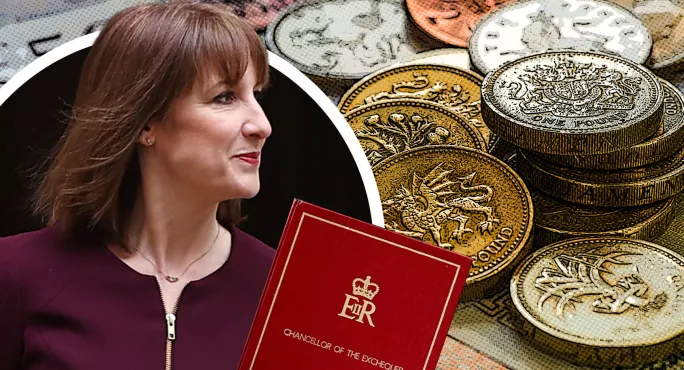The teacher pay review body should propose a pay rise of at least 3.7 per cent considering updated forecasts on earnings growth, an expert has said.
National Foundation for Educational Research (NFER) school workforce lead Jack Worth said it is now “unimaginable” that the government’s recommendation of a 2.8 per cent pay rise for teachers next year could “remain unchanged”.
The Office for Budget Responsibility (OBR) has today increased its forecast of average earnings growth for 2025-26 from 3 per cent to 3.7 per cent.
“Teacher recruitment and retention remains in a critical state and without urgent action, achievement of the government’s pledge to recruit 6,500 teachers will be in peril,” Mr Worth added.
NFER said earlier this month that the School Teachers’ Review Body (STRB) should recommend a pay rise of more than 3 per cent.
Budget implications
Meanwhile, OBR forecasts published in conjunction with the Spring Statement today suggest the core schools budget would see a fall in growth from 2026-27.
These forecasts assume per-pupil funding is held at the same level in real terms, which the OBR assumes is a “policy-neutral baseline”.
The government has not set out whether this will be the approach it takes to falling pupil rolls.
Based on the OBR’s forecasts today, Institute for Fiscal Studies research fellow Luke Sibieta said: “Falling pupil numbers mean that a real-terms freeze in spending per pupil after 2025-26 would amount to a £1.8 billion real-terms cut in total school spending by 2028-29.
“This equates to a 1 per cent real-terms cut in total school spending per year between 2025-26 and 2028-29.”
The IFS said in January that freezing per-pupil spending in real terms as pupil numbers fall would result in £1.2 billion in savings by 2027.
An alternative would be freezing total school spending until 2028-29, which would mean a growth in per-pupil spending as numbers of children entering the school system fall.
Chancellor Rachel Reeves has today set out her Spring Statement. It did not make any specific commitments for schools - however, it did confirm that resource departmental expenditure limits will grow by 1.2 per cent “at a slightly slower rate than set out at the Budget last autumn”.
Association of School and College Leaders funding specialist Julia Harnden said the 1.2 per cent growth set out “looks very tight given the competing demands of different departments”.
‘Ominous’
She added: “It is ominous that the government says it intends to drive efficiencies across the public sector and we would once again point out that all possible ‘efficiencies’ were exhausted long ago in schools and colleges and that any action to further drive down costs is better known as ‘cuts’.”
The general secretary of school leaders’ union the NAHT, Paul Whiteman, said it will be “absolutely vital” that school budgets are protected at the multi-year Spending Review in June.
At the Budget in autumn last year, Labour announced core school funding would increase by £2.3 billion for 2025-26. £1 billion of this was earmarked for special educational needs and disabilities.
This comes as schools and trusts said last week they were facing large shortfalls in DfE funding to cover increased employer national insurance contributions (NICs).
Tes reported last week that school finance experts have warned that despite funding increases, once costs are taken into account “the sector is looking at one of the most challenging forecasts in probably the past two decades”.





